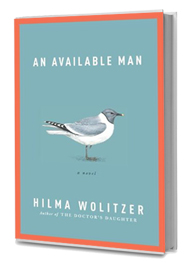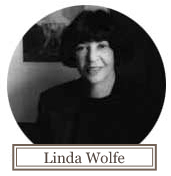.
FOF Linda Wolfe, the award-winning author of 10 books and a 12-year veteran of the National Book Critics Circle, shares 3 books in bloom this spring.
Enter to win all three books that Linda recommends by answering in the comments below: Which do you most want to read?
—————————————————————————————————
 THE SONG OF ACHILLES
THE SONG OF ACHILLES
by Madeline Miller. Ecco. 371 pages.
Song of Achilles won’t be out until March 6th, but if I were you, I’d pre-order this stunning novel by classics scholar and fiction first-timer, Madeline Miller. I read it in galleys, and these days galleys often bear the encomiums that will appear on the actual book’s jacket. They tend to be from friends of the author or editor, and often can’t be trusted any more than the words of the guy trying to sell you the Brooklyn Bridge. This galley came with the following proclamation by Emma Donaghue (author of Room): “Mary Renault lives again!”
I took her endorsement with a hefty cellar of salt. But once I cracked the pages, I had to admit that Donaghue was right. Madeline Miller tells her tale of ancient Greece and its warrior heroes with all the knowledge and story-telling strength of that fabled master of historical fiction, Mary Renault – not to mention that very first historical novelist to tell Achilles’ tale: Homer.
Remember the story? Achilles, the best warrior of his day, lurked moodily in his tent after being insulted by his commander, refusing to go out and fight the Trojans alongside his fellow Greeks. It was only after his best buddy, Patrocles, was killed during the fight, that Achilles came storming out of his tent, rallied the troops, and with uncontrolled rage and much brutal slaughtering drove the Trojans back. When I read the Iliad as a girl, I always wondered what made Patrocles so important to Achilles that he would wreak vengeance for his death on such a grand scale. Homer doesn’t tell us.
Miller, using the theories of Plato and other ancient Greek scholars and writers, does. Her Patrocles is not just Achilles’ best friend, but his longtime lover. This was a common interpretation of their relationship in the ancient world. There is even a fragment from a lost tragedy by the great ancient Greek playwright, Aeschylus, that speaks of Achilles and Patrocles exchanging “frequent kisses.”
In Song of Achilles, nine year old Patrocles, the son of a Greek king, is sent into exile because he has accidentally killed a bullying older boy. He is “adopted” by another Greek king, who often takes into his care young boys of good families to be potential companions to his son, the golden-haired Achilles. Although Achilles is half-god –his mother was a water goddess – he is unassuming and compassionate. He singles out the lonely Patrocles to be his friend, and from then on they study together, play together, get tutored in the arts of medicine and warfare, and, in their early teens, become lovers.
When the Greeks decide to go to war against the Trojans, Patrocles, who abhors killing, tries to evade conscription. But Achilles, hoping to make his name and win for himself a glorious destiny, is eager to fight. Equipped with troops, weapons and ships by his father, he sets out for the war, and Patrocles, fearing to lose him, follows.
What happens to them and their relationship during those long years is explored by Miller in a beguiling, psychologically astute, suspense-packed, and poignant tale. Don’t miss it!
—————————————————————————————————
 AN AVAILABLE MAN
AN AVAILABLE MAN
by Hilma Wolitzer. Ballantine. 285 pages.
The available man in Hilma Wolitzer’s wise and touching new novel is 64-year-old Edward Schuyler, a reserved high school science teacher whose beloved wife, Bee, has just died suddenly of pancreatic cancer. Bee, a psychologist, wasn’t the only woman Edward had ever felt passionate about. In his mid-twenties, he’d had an intense and highly sexual attachment to a fellow teacher. Despite her character flaws – Laurel had been inordinately possessive and unpredictable — Edward had loved her, or at least loved her body, “the bold and innovative ways she used it, the way she looked – those small springy breasts as tender as if they’d only recently budded; the springy surprisingly dark hair of her bush.” He’d become engaged to her, but on their wedding day, with one-hundred-and-fifty guests already seated in the church pews, Laurel stood Edward up and disappeared.
It had taken took Edward years of “emotional hibernation” and shallow hook-ups to get over the humiliation Laurel had inflicted on him before he met Bee and once again fell in love. Physically, Bee wasn’t his type at all. She was “full-breasted, with curly brown hair” and “her hips, like her smile, were a little too wide.” But what Bee had going for her was warmth and steadiness – and a ready-made family, consisting of her mother and her two young children. Giving up his Manhattan bachelor’s quarters, Edward had moved into Bee’s suburban home, and overnight become “a husband, a stepfather, a suburbanite, a mortgager, a birder, and a commuter.” More, he found that “He had never been so happy in his life.”
How then cope with the grief of losing a partner with whom he had shared twenty years of wedded bliss? How move forward with life? Or should he move forward?
Wolitzer skillfully takes us inside the head of this bewildered, anguished man as he tries to handle his despair, retain the love of his step-family, and yet possibly find intimacy and happiness again.
This time around, the rules and pathways of courtship have changed dramatically. Edward attends a grief support group and even, at the prompting of his stepchildren, tries online dating, but these do little to assuage his loneliness. So it is only by chance, and with effort, that in the end Edward does find happiness again. I daren’t tell you how because for a quiet domestic story, An Available Man is quite suspenseful.
Elegantly structured, this gem of a novel is the accomplished Wolitzer’s best work so far.
—————————————————————————————————
 HOW IT ALL BEGAN
HOW IT ALL BEGAN
by Penelope Lively. Viking. 229 pages.
How It All Began begins with a telling epigraph from scientist James Gleick’s book, Chaos: “The Butterfly Effect was the reason. For small pieces of weather – and to a global forecaster small can mean thunderstorms and blizzards – any prediction deteriorates rapidly. Errors and uncertainties multiply, cascading upward through a chain of turbulent features, from dust devils and squalls up to continent-size eddies that only satellites can see.”
Lively proposes in this, her twentieth novel, that The Butterfly Effect can alter lives as well as weather. How It All Began follows a chain of events that result when 76-year-old Charlotte Rainsford, who tutors foreign students in English, is mugged on the street near her London home. The mugger steals her purse, knocking her down in the process, and the fall makes Charlotte fracture her hip. When she’s let out of the hospital on crutches, her married daughter, Rose, insists on having Charlotte live with her and her husband until the fracture is healed.
The necessity of looking after her mother causes Rose to skip a day of work with her employer, the self-centered historian, Lord Henry Peters. Lord Peters is due to give a speech in Manchester that day about the politics of the eighteenth century, and, not wishing to travel alone, solicits the help of his niece, Marion, an interior decorator. In order to accompany him, Marion cancels a date with her married lover, Jeremy Dalton. Her text message to him accidentally falls into the hands of Jeremy’s wife, Stella. And, staying home for the day, Rose meets Anton, a pupil of her mother’s.
Rose and Anton fall in love, endangering Rose’s marriage. Lord Peters, nervous and out of sorts, makes a fool of himself in Manchester, Stella kicks Jeremy out of their home. Marion finds a new and more satisfying life without him. And so it goes, with character after character experiencing enormous life changes as a result of that unfortunate street mugging of an elderly woman.
Charlotte is the most deeply drawn of the large cast, perhaps because she seems to be the voice of the author, herself in her late seventies. Charlotte’s thoughts are eloquent. “For years now,” she thinks, “pain has been a constant companion. Cozily there in bed with one in the morning, keeping pace all day, coyly retreating perhaps for a while only to come romping back: here I am, remember me? Ah, old age. The twilight years – that delicate phrase. Twilight my foot – roaring dawn of a new life, more like, the one you didn’t know about. We all avert our eyes, and then – wham! You’re in there too, wondering how the hell this can have happened, and maybe it is an early circle of hell and here come the gleeful devils with their pitchforks, stabbing and prodding.”
The other characters are somewhat shallow, more caricatures than characters, really, but they are unfailingly amusing. Henry, who has lost his prominence and begun losing his memory, knows that “history is a slippery business; [that] the past is not a constant but a landscape that mutates according to argument and opinion. Henry is well aware of this, and aware that the eighteenth century has disappeared over the horizon so far as he is concerned, reconstructured, reinterpreted.”
That eighteenth century, whose disappearance from his memory has devastated Henry, doesn’t much trouble his niece, the interior decorator. “That period, for Marion, meant certain furnishings and styles: Chippendale, Hepplewhite, Robert Adam. Stripes. Tottery little tables….She had got through life quite easily knowing nothing much of the eighteenth century.” Jeremy, courting his wife in an effort to woo her back, takes Stella to “a courtship restaurant. He had taken Marion there once, early on. No matter. She hadn’t cared for it – something wrong with the decor.”
And all of the characters, even those who are lightly drawn, have moments of epiphany, sudden realizations of the meaning of what they are going through. Charlotte, living with Rose but not privy to her feelings about Anton, thinks, “Who knows their own child? You know bits – certain predictable reactions, a handful of familiar qualities, The rest is impenetrable. And quite right too. You give birth to them. You do not design them” Anton, after Rose decides to remain in her marriage, accepts the failure of their relationship because it has made him feel alive again. “I had forgotten…not just what it was like to feel, but that feeling existed at all. It is like coming out into the sunlight.”
And what of the mugger? Here, Lively is at her wittiest. “The delinquent …was himself set upon almost immediately by a hostile gang and relieved of £67.27, which were distributed among the gang membership and disposed of within the hour. The delinquent was much annoyed at his loss, but recovered within a day or two; so it goes. Beyond him, unknown and of no interest, he had left Charlotte on her crutches, the embattled Daltons, Henry in his humiliation, Marion, Rose, Anton…Demonstrating that no man is an island. Even a fourteen-year-old with behavioral problems.”
Enter to win all three books that Linda recommends by answering in the comments below: Which do you most want to read?
—————————————————————————————————
(See all our past winners, here.) (See official rules, here.) Contest closes March 8, 2012 at midnight E.S.T.



